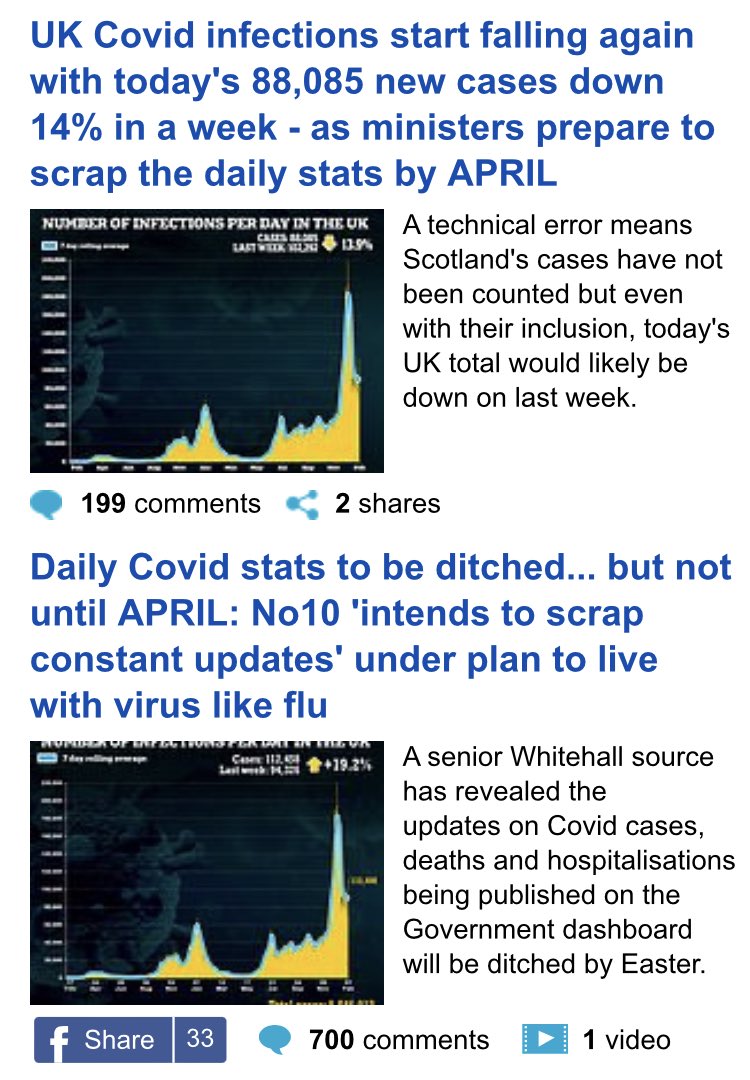
10 Key Brexit facts
1. Brexit Day is 29 March 2019 at 11pm, unless Article 50 is extended to give us more time. An Article 50 extension requires the unanimous consent of the EU27.
1. Brexit Day is 29 March 2019 at 11pm, unless Article 50 is extended to give us more time. An Article 50 extension requires the unanimous consent of the EU27.
2. Brexit can still be stopped, right up to Brexit Day, by revoking Article 50. Theresa May can revoke Article 50 unilaterally. The EU cannot stop Brexit, only the UK can.
3. Parliament has a say on any Brexit deal, but it doesn't have a say on "no deal". That's because "no deal" isn't a deal at all, but the absence of deals, and the promise to Parliament of a "meaningful vote" only covers a vote on an actual deal.
4. By default, we will automatically enter a "no deal" situation on Brexit Day, unless we agree and ratify a Withdrawal Agreement. That's just how Article 50 works.
5. The only way that Parliament could stop Brexit without Theresa May cooperating would be to force a vote of no confidence that brought down the Government and precipitated a General Election. Ditto if Parliament wanted to prevent a "no deal" Brexit.
6. On Brexit Day, we cease to be EU members. We're out of the EU, gone, finito, the end. That means there's no way to stop Brexit after Brexit Day, regardless of whether there's a transition period or not.
7. On Brexit Day, we lose all benefits from 750+ EU treaties. Imagine a big shredder churning away, shredding all our international agreements. The treaties cover free trade with 50+ countries, flights, medicine certification, UK & EU citizens rights, visa-free travel, etc. etc.
8. We will lose all the treaties on Brexit Day even if we have a Withdrawal Agreement and a transition period. A transition period would give us some of the same benefits as the treaties used to (by copying their conditions) but it does NOT prolong the treaties themselves).
9. We cannot replace the treaties with new arrangements unilaterally, without the cooperation of both the EU and of non-EU countries. That's because we do not have any power to bind other countries without their agreement. Each treaty will have to be renegotiated individually.
10. There is a second "cliff edge" at the end of the transition period. When the temporary benefits of the transition period end, we're already out of the EU, with no treaties. So we face a second "no deal" scenario, unless we can finish negotiating all our new relationships.
Further Reading #1
Information about the trade and non-trade treaties that apply to the UK, and what happens to them after Brexit. HOC "Continuing application of EU trade agreements after Brexit" report:
publications.parliament.uk/pa/cm201719/cm…
Information about the trade and non-trade treaties that apply to the UK, and what happens to them after Brexit. HOC "Continuing application of EU trade agreements after Brexit" report:
publications.parliament.uk/pa/cm201719/cm…
Further Reading #2
Background on the "no deal" situation, how "no deal" can come about, and what the consequences would be. HOC "Article 50 negotiations: Implications of 'no deal'" report:
publications.parliament.uk/pa/cm201617/cm…
Background on the "no deal" situation, how "no deal" can come about, and what the consequences would be. HOC "Article 50 negotiations: Implications of 'no deal'" report:
publications.parliament.uk/pa/cm201617/cm…
Further Reading #3
A current list of the unknown factors surrounding Brexit, to get an idea of the negotiating fog the UK Government is operating in. HOC "Brexit Unknowns" report:
researchbriefings.files.parliament.uk/documents/CBP-…
A current list of the unknown factors surrounding Brexit, to get an idea of the negotiating fog the UK Government is operating in. HOC "Brexit Unknowns" report:
researchbriefings.files.parliament.uk/documents/CBP-…
Further Reading #4
More background to the 750+ treaties the UK will be losing on Brexit Day. FT article "After Brexit: the UK will need to renegotiate at least 759 treaties"
ft.com/content/f1435a…
More background to the 750+ treaties the UK will be losing on Brexit Day. FT article "After Brexit: the UK will need to renegotiate at least 759 treaties"
ft.com/content/f1435a…
Further Reading #5
Map of all the trade deals we participate in as EU members. Shaded areas indicate the countries the EU (and currently the UK) can trade with on better-than-WTO terms, or where trade deals are pending. (WTO is the baseline that trade deals seek to improve on.)
Map of all the trade deals we participate in as EU members. Shaded areas indicate the countries the EU (and currently the UK) can trade with on better-than-WTO terms, or where trade deals are pending. (WTO is the baseline that trade deals seek to improve on.)

Further Reading #6
List of all the trade negotiations the EU is currently engaged in. Note the comprehensiveness of their approach, and the time and effort it has taken to make progress in each case. Negotiating new trade agreements is HARD.
trade.ec.europa.eu/doclib/docs/20…
List of all the trade negotiations the EU is currently engaged in. Note the comprehensiveness of their approach, and the time and effort it has taken to make progress in each case. Negotiating new trade agreements is HARD.
trade.ec.europa.eu/doclib/docs/20…
• • •
Missing some Tweet in this thread? You can try to
force a refresh





